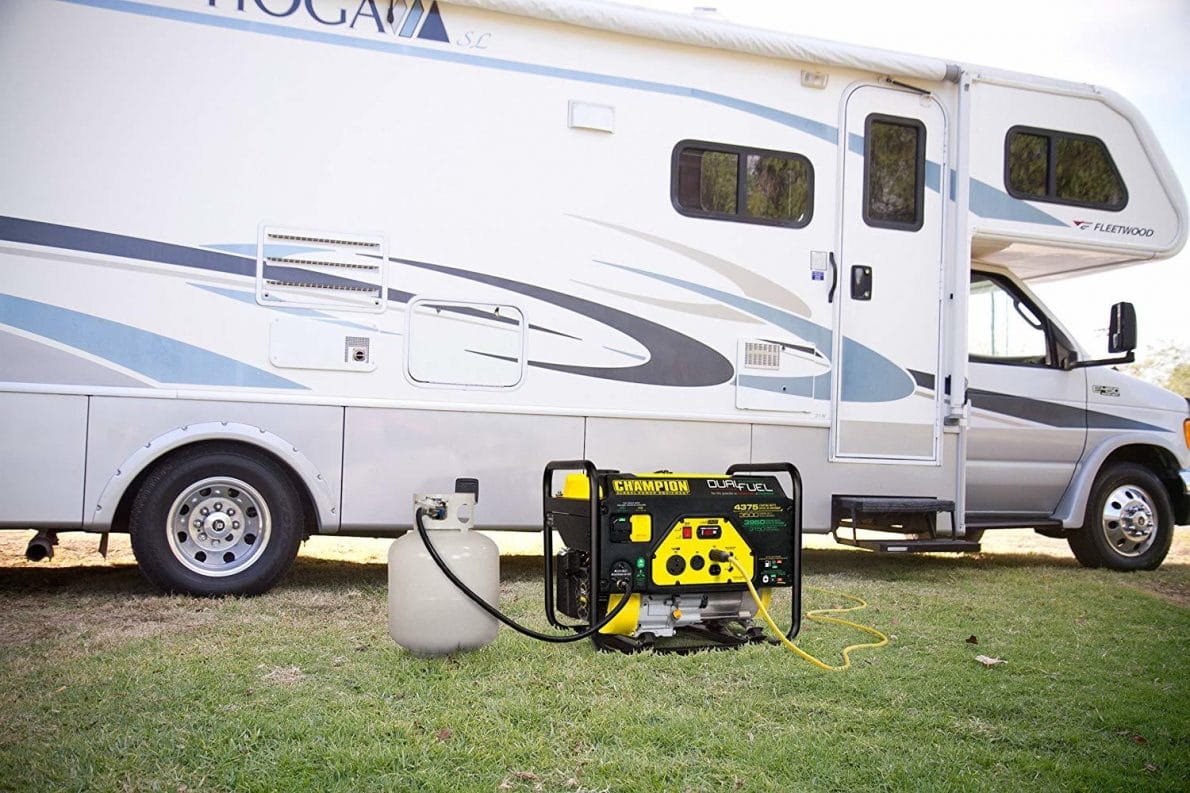
No matter where you are in the world, power is an essential part of maintaining good quality-of-life. This is especially important when on the road in your RV or motorhome.
Imagine a scenario where the power cuts out, and you’re left running on the generator. Generators are the heart of every motorhome, keeping things running when they need to. Having a generator ready seems easy, but it’s not a cut-and-dry solution, however.
You must ask yourself, “what size of generator do I need for my RV?”
What Is The Perfect Size Of Generator For My RV?
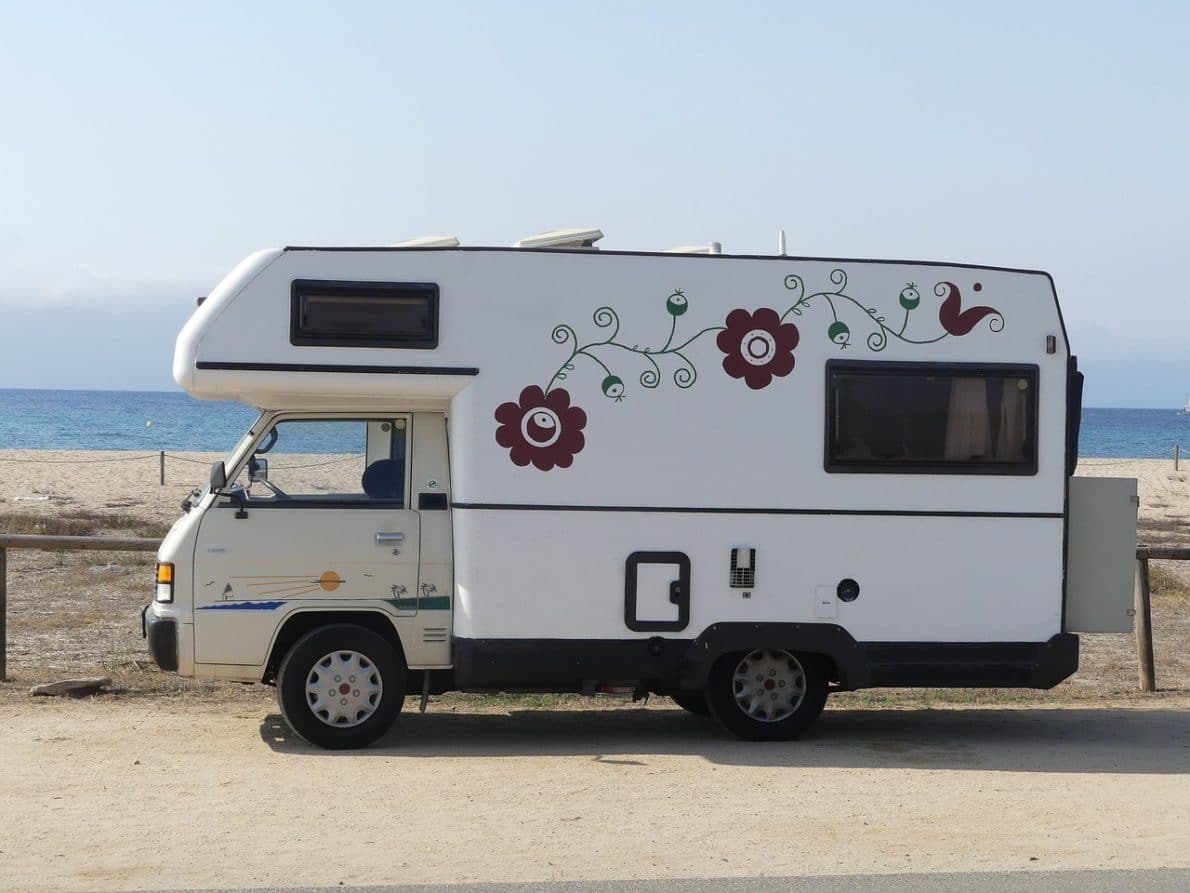
4 Steps To Remember
Generators aren’t cheap but investing in the right size for your needs makes the most sense. Also, there are few things worse than under-sizing your generator.
Oversizing is also a problem.
We hate to see people make errors in their choices, so we thought it good to explain the best way to pick a device to suit your needs.
Thus, we’ll walk you through some easy steps in choosing the best-sized generator for your RV.
Step One: Select A Fuel Type
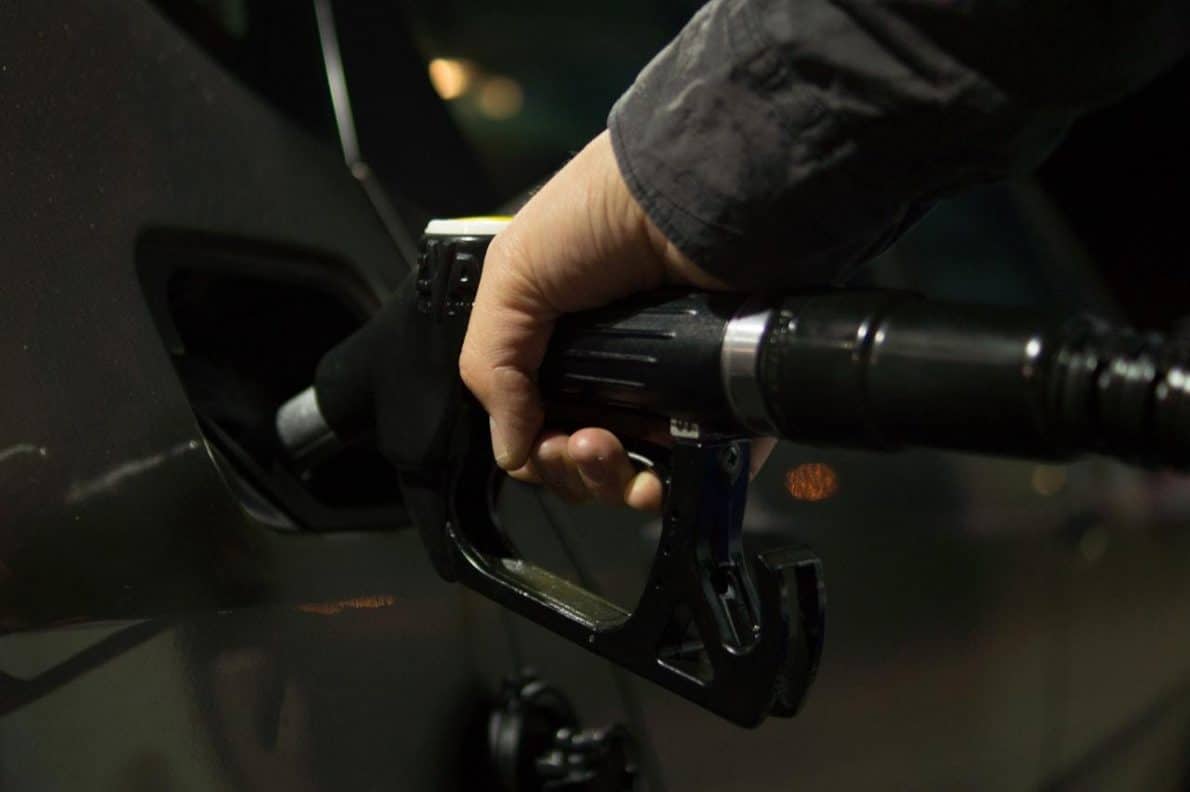
If you have a gasoline-based motor in your RV, chances are you should invest in a gas-powered generator. The same advice goes for a diesel-fueled generator. If you’d prefer to use liquid propane, there’s that option too.
The point is that every motorhome is different, so adhering to the needs and specifications of your RV’s design is the best course of action.
Sure, there are advantages and disadvantages to each, but this is the case with all fuel types. Once you’ve determined the source of fuel for your generator, you can move on to the next step.
Step Two: Estimate The Appliances You Have And Use

“What size of the generator do I need?” is the most common expression in the world of motorhome power.
Everyone asks this question after something has happened, which makes it more difficult for them. You never want to be forced to buy a product, and it pays dividends to be prepared for any issues.
You will save yourself money and make sure everything works properly with the properly-sized generator installed to your RV.
So, to narrow down your options of machines, you must measure the different appliances, small or large, that you might use. All devices that are plugged into your RV will drain your generator’s power, so having an estimated total of your power consumption can make buying a generator easier.
Making a quick list to jot down all your RVs appliances is an easy route to take.
Think about it like this: grab a piece of paper, a pen, and walk around the motorhome, noting any appliance that runs off 120V power outlets.
Power Is A Major Player
Also, remember your measurements. Watts is equal to volts times amps. To make it simpler on yourself, find the type of power measurement that you plan to shop by (most generators are listed in watts) and convert all your appliances to that type.
Keep in mind that even though your air conditioner may need 2000-watts to run, the generator you choose is all about simultaneous usage.
It doesn’t matter if you need to microwave and refrigerate at the same time, as long as you have enough power to supply everything on the needed energy.
Step Three: Set A Budget

This is one of the hardest steps to follow, as anytime you walk into a hardware or home improvement store to make a bigger purchase, the salespeople will always want to upsell you.
The best course of action here is, once you’ve determined what you’ll need to run and how much power all your gadgets will consume, set a spending budget for your new generator. There will always be “better” units to consider when purchasing equipment, but most of the time these come with added costs.
Think about all the features and bonuses you want to see in a generator and go in with that mindset. Knowing, roughly, what you want and how much you’d like to spend on these electrical devices keeps expectations in check.
Typical units will start as low as $, with the high-end, big-boys setting you back upwards of $$$. Again, it’s all based on your needs as a family.
[amazon bestseller=”RV generators” items=”3″]
Step Four: Select A Brand And Style

This is the best part, as all your hard work will be paying off.
You’re picking the brand and style of your future emergency device, so knowing some to consider beforehand can help.
It seems funny to think that generators have styles, but it’s true. While most RV-ready generators are going to be portable by nature, you may be able to get away with a non-portable model.
Likewise, there are many different makes and models to choose from.
Your typical names are Champion, Honda, Cummins, and Briggs & Stratton. These will provide some of the most reliable options in the business, and you’d do well to consider one of their models first.
Some Quick Recommendations Based On Different Sizes
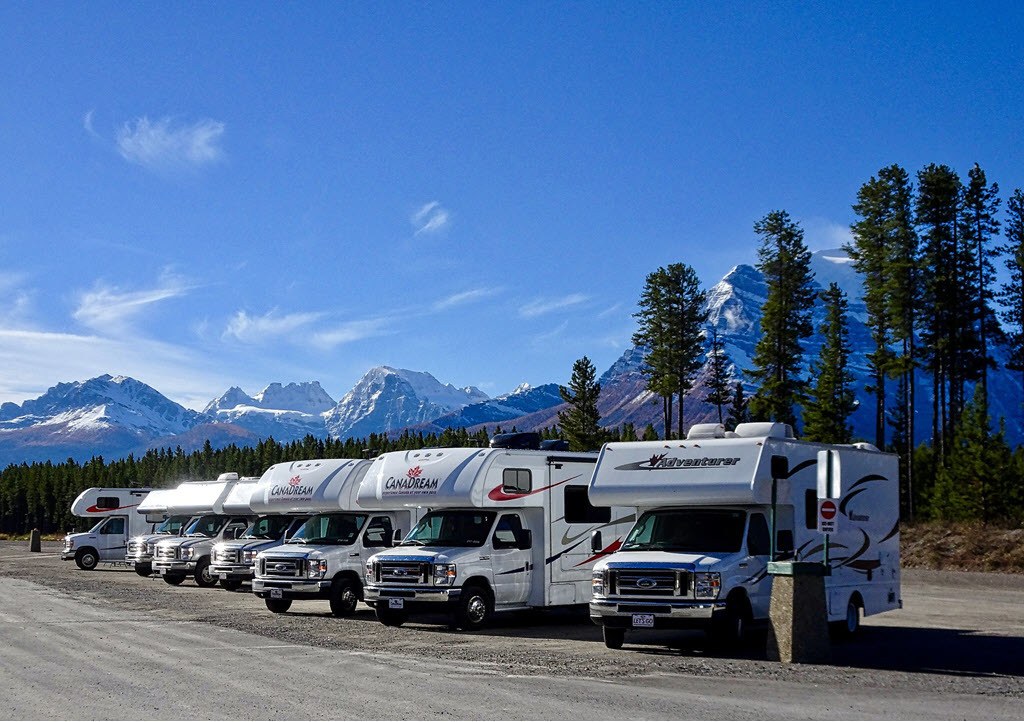
While we’ve laid out the quick steps to take in picking the right generator for your motor home, we thought it would be good to give you some starting models too.
For The Smaller Jobs And Campers: Champion 100307
If you have a folding, truck, or sport utility camper, the best size for you will be around the 4,000-watts-or-less mark.
Most of these style campers don’t have the big appliances that a true motorhome has, and as such it’s easier to scrape by with the bare minimum in terms of solutions. As such, we’d recommend the Champion 100307 3,500-watt portable generator.
The device runs off standard gasoline, can run for 11-hours on 3.4-gallons, plus it’s rated at 68 dBA at 23-feet away. It’s a great buy at $, and a good addition for those smaller needs.
Pulling Medium-Duty: All Power America G6000
If you have a folding, truck, or sport utility camper, the best size for you will be around the 4,000-watts-or-less mark.
Most of these style campers don’t have the big appliances that a true motorhome has, and as such it’s easier to scrape by with the bare minimum in terms of solutions. As such, we’d recommend the Champion 100307 3,500-watt portable generator.
The device runs off standard gasoline, can run for 11-hours on 3.4-gallons, plus it’s rated at 68 dBA at 23-feet away. It’s a great buy at $$, and a good addition for those smaller needs.
For The True Mammoths: Briggs & Stratton 30664
If a standard, Class A motorhome is your thing, then you’ll need big power under-the-side to keep everything running smoothly.
This Briggs & Stratton 10,000-watt generator should do you good. It features a 7.5-gallon fuel tank to keep enough gas inside for 9-hours of use at half-load, while only needed. There are also multiple outlets for electronics, in case you need to pull it out of the RV.
Plus, there’s a 3-year warranty in case anything should happen and Bluetooth connection for active monitoring.
Knowing How To Choose The Perfect Generator Is Important
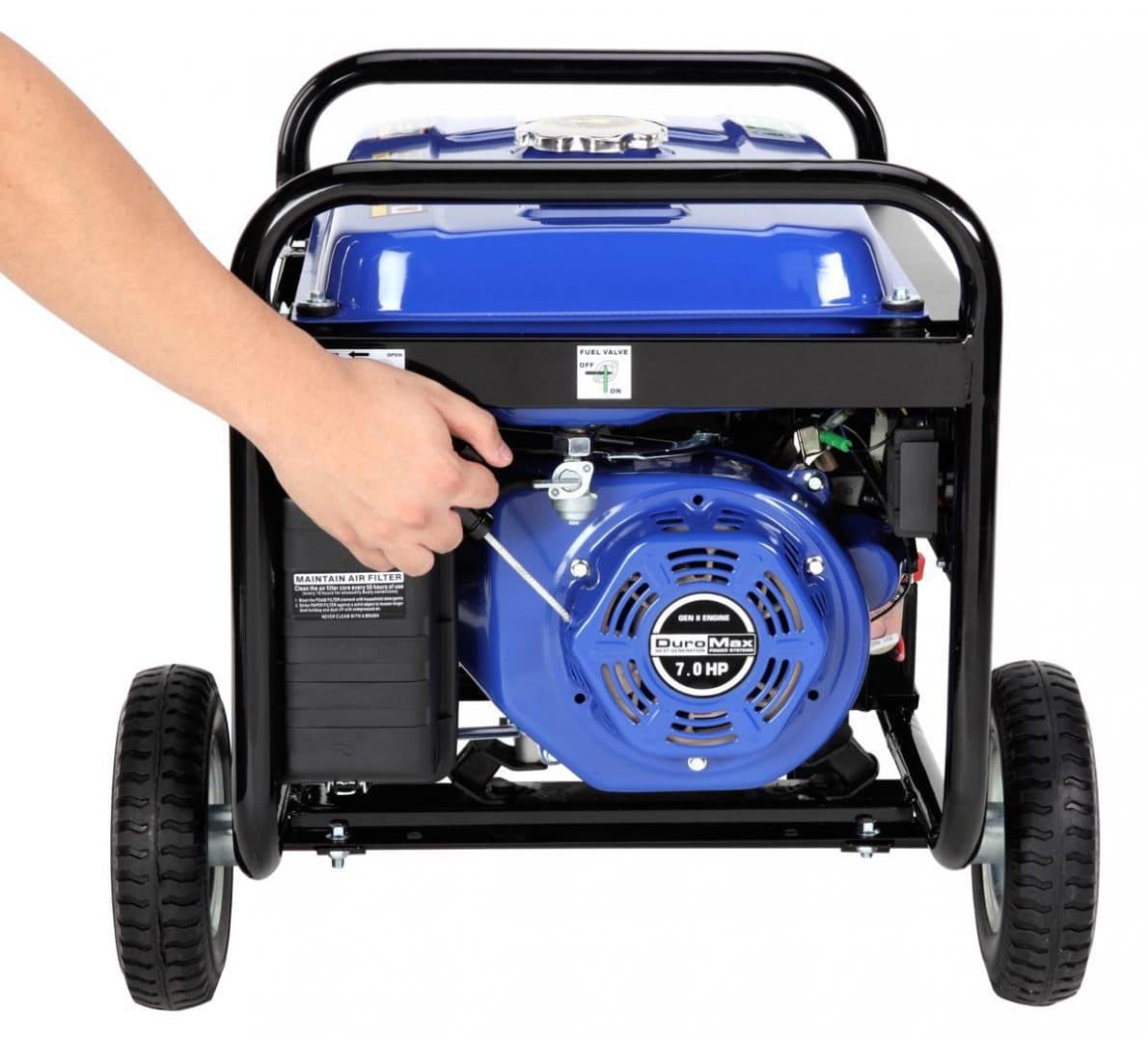
So, next time you ask your local hardware store employee, “what size generator do I need?” you’ll know exactly how to react. You’ll have the information needed to sift through their recommendations with ease, finding the perfect fit for your motor home.
If you’re completely lost, there are tools out there to help you gain a good starting point.
Cummins has a great one to use, but just remember that these should be the first tool you use, not last resort. The point is you know your RV better than any algorithm or sizing tool might, so use that power to find the best size generator for you.
No matter the generator you choose, make sure it is RV-ready.
Our last piece of advice?
Test out your generator before accepting it as the final one. We can’t tell you how many times we’ve seen someone purchase a generator and then it not be the right fit for their RV. Don’t let that be you, so test it yourself before you need to use it.
Aside from that, you should never have to ask yourself “what size generator do I need?” again.
There’s no universal answer to that question, but with this guide, you should be able to determine the needs of your RV.